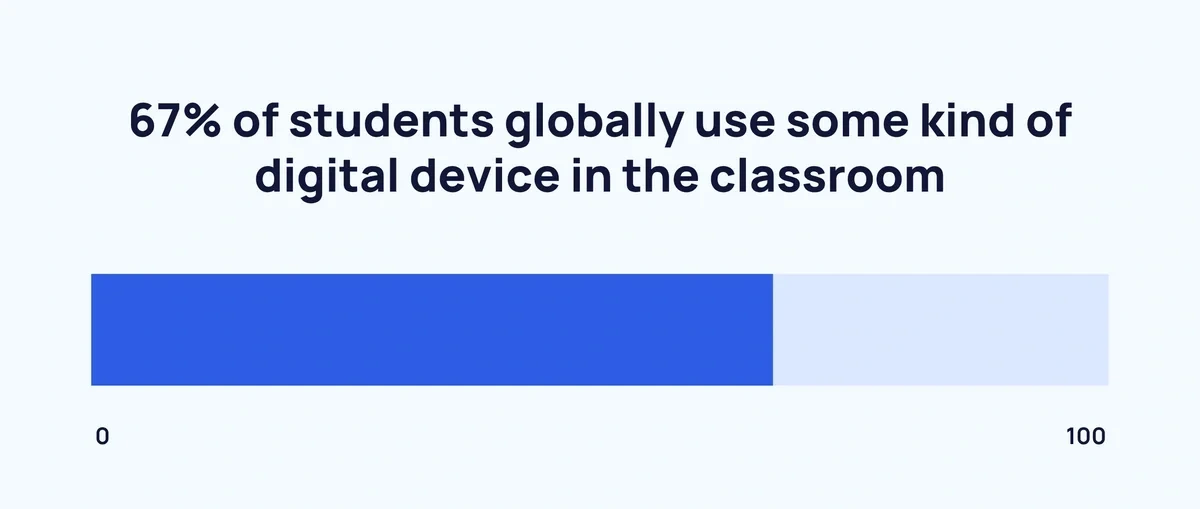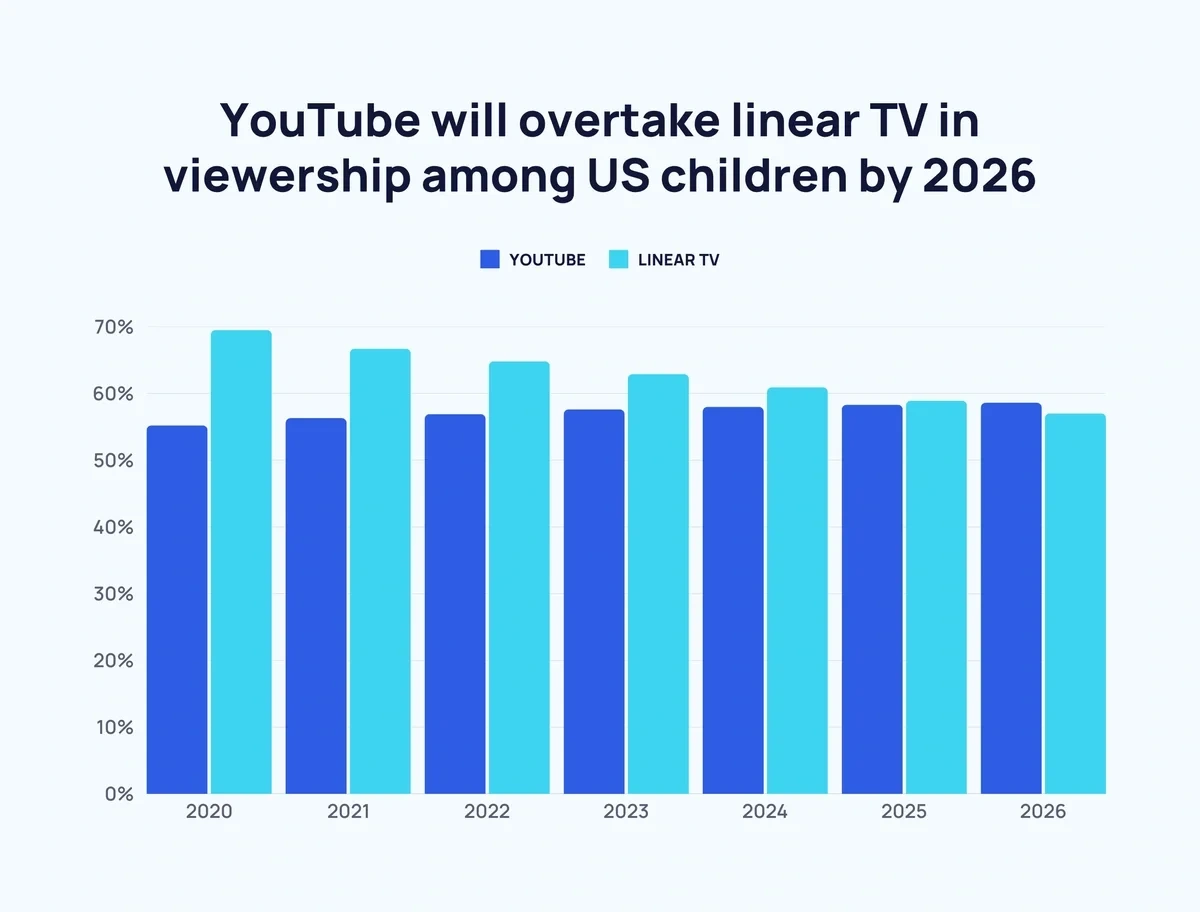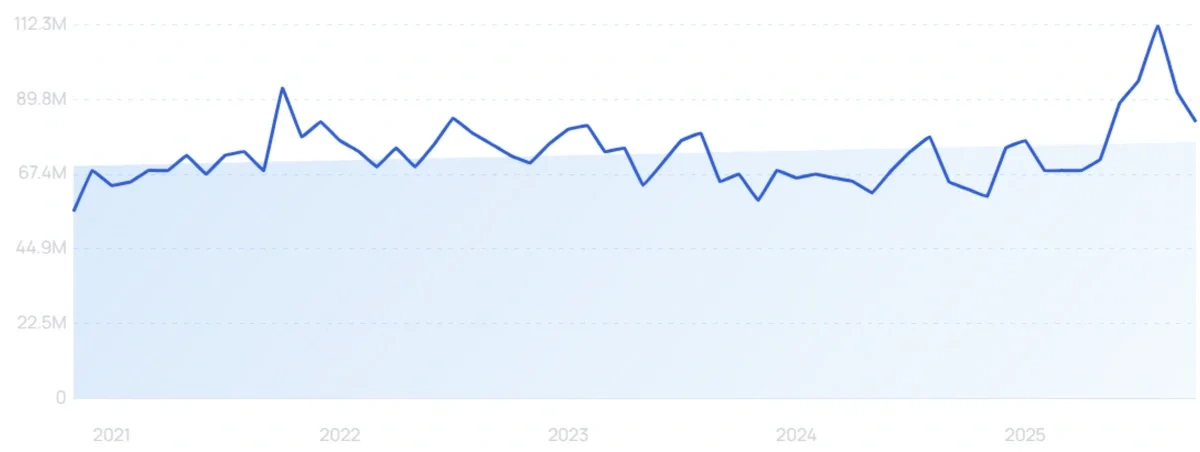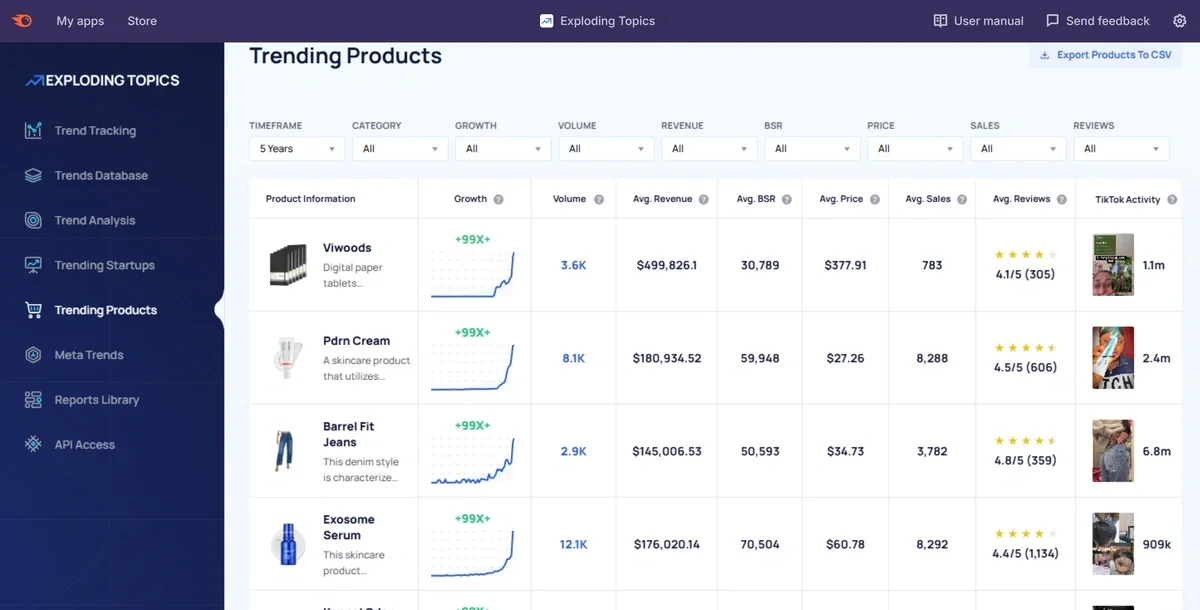Get Advanced Insights on Any Topic
Discover Trends 12+ Months Before Everyone Else
How We Find Trends Before They Take Off
Exploding Topics’ advanced algorithm monitors millions of unstructured data points to spot trends early on.

Keyword Research
Performance Tracking
Competitor Intelligence
Fix Your Site’s SEO Issues in 30 Seconds
Find technical issues blocking search visibility. Get prioritized, actionable fixes in seconds.
Powered by data from
Generation Alpha: Statistics, Data and Trends (2025)
Generation Alpha is made up of people born between 2010 and 2024. They’re the first generation born entirely in the 21st century. Broadly speaking, their parents are Millennials and their older siblings are Gen Zs.
While some sources count 2025 as the last year of new Gen Alphas, the general consensus is that we have now entered Generation Beta.
Gen Alpha is in a unique position. While they’re not the first digitally native generation (that would be Gen Z), they understand and adapt to new technology faster than any previous generation.
Millions of Gen Alphas are barely a year old, and even the oldest are only just starting high school. As such, their future outlook is mostly up in the air. But by examining their attitudes and perspectives today, we can get a clearer picture of what the future might hold for them.
Top Generation Alpha Statistics
Looking for a quick overview? Here are the top 6 Gen Alpha stats to know.
- There are 2 billion Gen Alphas worldwide.
- Gen Alpha makes up almost a quarter of the global population.
- 66% of Gen Alphas will work in jobs that don’t exist today.
- More than half of Gen Alphas are expected to earn a university degree.
- Gen Alpha already has $28 billion worth of spending power.
- Gen Alpha will make up 19% of the workforce by 2035.
- YouTube will overtake linear TV among Gen Alphas in 2026.
Overall Generation Alpha Statistics
Generation Alpha is the first generation born in the 21st century. Raised with more diversity and technology than any previous generation, Gen Alphas see and interact with the world differently than their parents and older siblings. These stats cover who Gen Alphas are, the issues they face, and what matters most to them.
There are 2 billion Gen Alphas worldwide (United Nations)
The count of 2 billion for Generation Alpha comes from January 2025. So assuming you accept the end of 2024 as the cut-off, we've reached the height of the Gen Alpha population.
Generation Alpha is the single largest generation, making up 24.4% of the global population (United Nations)
Gen Alpha single-handedly accounts for almost a quarter of the world population. They are followed by Gen Z (22.9%) and Millennials (21.2%).
Generation Alpha is the most diverse generation in US history (Kids Count Data Center)
Racial demographics in the United States have been tilting toward more diversity over the past several decades, and Gen Alpha reflects that shift. According to the latest data, 52% of American children identify as either non-white or Hispanic.
Less than 50% of Gen Alpha spend time with their parents from 9AM-3PM on weekends (The Kite Factory)
Despite their young age, Gen Alpha are already assering their independence. In 2019, around 70% of children aged 10-15 spent time with their parents between 9 and 3, but that has dropped below 50% in 2024.
Gen Alphas will live longer than previous generations (Statista)
Increased life expectancy has been a trend throughout human history, and it’s thought there are roughly 750,000 centenarians alive today. The average American born in 1984 can expect to live for a little under 75 years. Gen Alphas born in the US in 2024 have an average life expectancy of 79.5 years (rising to 79.6 in 2025).
Generation Alpha Education & Career Statistics
Generation Alpha is growing up at an unprecedented time for both education and work. Remote learning and education technology give students more ways to learn. As Gen Alpha enters the workforce, they’ll have exciting career paths that don’t even exist today.
More than half of Gen Alphas are predicted to earn a university degree (McCrindle)
Generation Alpha is set up to be the most highly-educated generation in history. Mark McCrindle predicts that 90% will earn a high school diploma (compared to 79.9% of Gen Z teenagers) and "the majority" will go on to tertiary education. A UK study found that 75% of Gen Alpha intend to go to university.
Build a winning strategy
Get a complete view of your competitors to anticipate trends and lead your market
67% of students globally use some kind of digital device in the classroom (Qustodio)
Most of the oldest Gen Alphas spent at least one full school year remote learning during the COVID-19 pandemic. Navigating the crisis caused a spike in the education sector's embrace of technology.
But the percentage of students required to use a device for school has actually dropped: from 73% in 2023 to 67% in 2025. Only 1 in 4 children are required to bring a device from home.
69% of fourth-graders aren’t proficient in reading (NAEP)
Reading is an important metric in predicting education outcomes. By the fourth grade, children are expected to learn other subjects by reading about them. With almost 7 in 10 fourth graders not classed as ‘proficient’ in reading, a seven percentage point increase on 2019 (and two percentage points up on 2022), literacy remains a top priority for today’s educators.
Around 2 in 3 Gen Alphas will work in jobs that don’t exist today (NewsWeek)
With technology accelerating at a rapid pace, entirely new industries will exist by the time Gen Alpha enters the labor market. They’ll also hold jobs in today’s emerging industries, like artificial intelligence and blockchain technology.
Gen Alpha will make up 19% of the workforce by 2035 (McCrindle)
Gen Alpha is currently a negligible part of the global workforce, with the oldest members only 15. But by 2035, 19% of the workforce will be Gen Alpha, only slightly below the 21% of Gen X workers.
STEM career opportunities could increase by 8.1% over the next decade (BLS)
By 2034, the oldest Gen Alphas will have been in the workforce for half a decade or longer. Employment in STEM — science, technology, engineering, and math — is projected to grow almost 8% from 2024-2034, compared to just 3.1% for the overall jobs market.
The average STEM job commands a $103,580 median annual salary, compared to $49,500 for all jobs combined.
Want to Spy on Your Competition?
Explore competitors’ website traffic stats, discover growth points, and expand your market share.
Generation Alpha Consumer Statistics
What sort of media does Generation Alpha consume? How do they balance time spent outdoors, with friends, and in front of screens? Here are the latest Gen Alpha entertainment stats.
Generation Alpha already has direct spending power of $28 billion (Numerator)
More than half of Gen Alpha parents give an allowance to their children, with an average weekly allowance of $22.
By 2029, when the first Gen Alphas will be entering the workplace, spending forecasts for Gen Alpha are as high as $5.4 trillion.
Parents are 17 percentage points less likely to describe Gen Alpha's internet usage as "heavy" compared to 2021 (GWI)
In 2020, McCrindle said that Gen Alpha spent more time looking at screens than any other generation. But in Q1 2025, GWI found a 17 percentage point reduction in parents describing internet usage as heavy compared to 2021.
Gen Alpha have also grown fonder of gym class and less keen on IT, and they're 15 percentage points more likely to see friends on weekends than they were in 2021. They are consciously logging out.
28% of Gen Alpha choose the cinema for watching films (GWI)
The cinema industry is battling the massive growth in streaming. But Gen Alpha is leading a cinema revival, with 28% preferring the big screen. Interest has grown every year since 2021.
YouTube and Disney+ are the most popular video streaming services for Gen Alpha (Morning Consult)
60% of Gen Alpha are on YouTube, and 54% use Disney Plus.
YouTube will surpass linear TV among Gen Alpha by 2026 (eMarketer)
According to eMarketer, 58.9% of US children watch linear TV at least once a month, while 58.3% watch YouTube. The crossover is forecast for 2026, when 58.6% will watch YouTube and only 57% will watch linear TV.
44% of Gen Alpha use TikTok (AdWeek)
89% of Gen Alpha TikTok users in the US access the app daily. And according to TMPW, more than 1 in 10 Gen Alpha members want to become TikTokers, YouTubers, or vloggers.
38% of Gen Alpha gamers want to play video games that allow them to build or create (GWI)
Games designed to facilitate creativity are the top choice for Gen Alpha gamers. 51% of 12-15-year-olds report playing Roblox over the past month, up from just 26% in 2021.
Roblox receives 583.9 million visits each month.
Searches for “Roblox” over the past 5 years.
You can use Exploding Topics Pro to keep track of trends like these. With a vast library of trending products, including tracking of TikTok activity, you can see exactly what's gaining popularity with Generation Alpha.
As a marketer, if you're trying to get to grips with what Generation Alpha is really buying and searching for, then Exploding Topics Pro really is invaluable. As well as full database access, you'll get weekly emails curating some of the very best emerging products and startups.
Wrap Up
Generation Alpha is the youngest generation living on the planet today, but also the largest. They already have billions of dollars worth of direct spending power, and that's set to explode within the next 5 years.
As Gen Alpha matures, their expectations from brands, organizations, and governments are sure to have a lasting impact on the next several decades of human history. For marketers, it is essential to get to grips with their habits and likes.
I find that pairing Exploding Topics Pro with Semrush makes for a truly powerful toolkit.
For more related content, take a look at Key Gen Z Trends and Millennial Trends.
Stop Guessing, Start Growing 🚀
Use real-time topic data to create content that resonates and brings results.
Exploding Topics is owned by Semrush. Our mission is to provide accurate data and expert insights on emerging trends. Unless otherwise noted, this page’s content was written by either an employee or a paid contractor of Semrush Inc.
Share
Newsletter Signup
By clicking “Subscribe” you agree to Semrush Privacy Policy and consent to Semrush using your contact data for newsletter purposes
Written By


Josh is the Co-Founder and CTO of Exploding Topics. Josh has led Exploding Topics product development from the first line of co... Read more











